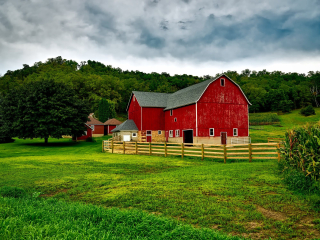 Life insurance can be useful in paying off debt, covering funeral costs and serving as a useful resource so that estate proceeds or any one person’s savings don’t have to be tapped.
Life insurance can be useful in paying off debt, covering funeral costs and serving as a useful resource so that estate proceeds or any one person’s savings don’t have to be tapped.
Life insurance may be the least sexy part of the transition from one farming generation to another, but this financial tool can be very valuable. If parents or grandparents have planned properly, the proceeds from the life insurance may provide the funds that permit the farm to stay in the family. The proceeds, which are not subject to estate taxes, can be used to buy out the non-farming siblings so that the family ownership of the land can continue to another generation.
Successful Farming’s recent article, “Using Life Insurance in Estate Planning,” quotes David Bau, a University of Minnesota Extension educator based in Worthington, Minnesota. He says, “Life insurance is expensive, but it’s still a very good tool in the process. The farming heirs can have insurance on their parents, and they can use that money to buy out the estate.”
Farm families typically can’t afford enough insurance to cover the increase in land values over several decades. Therefore. life insurance can be a tool to provide some fairness to the process and keep the farming business viable.
Term insurance covers death risk and increases in cost, as the covered person ages. Whole and universal life policies include a savings component with the term insurance, and these types of policies may grow in value over time.
Life insurance has many uses, including the following:
- Paying estate taxes. Even though few families are likely to be hit by estate taxes with the federal tax reform, some states also have estate taxes;
- Paying off debts, estate settlement costs and funeral expenses;
- Savings in whole life policies can be borrowed to cover retirement or nursing home costs for the older generation (but it reduces the proceeds that might go to heirs); and
- Providing an inheritance to non-farm heirs.
To get the benefits of life insurance, do some careful planning with an experienced attorney and avoid common pitfalls. For example, if you don’t want insurance proceeds to be included in a taxable estate, the heirs need to own the policy. The use of life insurance for paying estate taxes also really isn’t helpful for farmers whose spreads may not be worth as much as the nearly $22 million that a couple can now pass to a new generation tax-free. It should instead be part of an estate planning process designed to provide a fair transition to a new generation.
You don’t have to be a farmer to want to pass along your property and assets to the next generation. But you do need to sit down with your Houston estate planning attorney to make sure that your wishes will be documented, and your will and estate plan is ready to protect your family.
Reference: Successful Farming (October 5, 2018) “Using Life Insurance in Estate Planning”
 Houston Estate Planning and Elder Law Attorney Blog
Houston Estate Planning and Elder Law Attorney Blog

